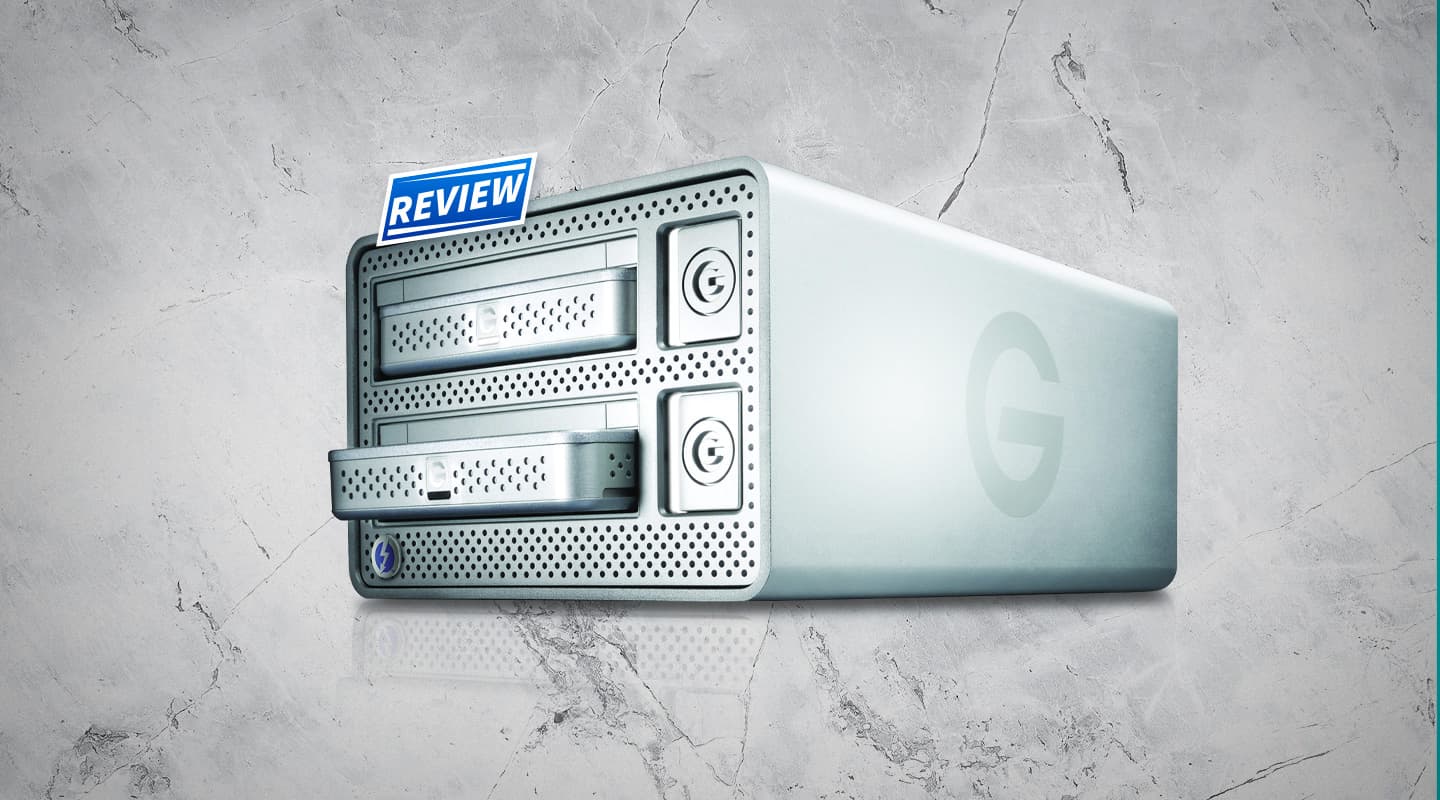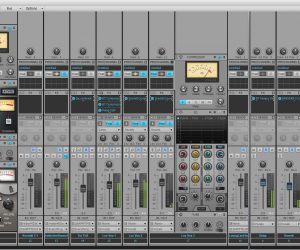
Review: G-Technology G-Dock
Grab-n-Go Thunderbolt option lets you take your studio sessions on the road with ease.
Review: Anthony Garvin
With Thunderbolt now outpacing internal SATA, and all new Macs shipping with the connector, it’s time to get serious about peripherals for the bolt. G-Technology is owned by Western Digital, but tends to focus on developing storage options for creative professionals. The G-Dock EV is one of three Thunderbolt options G-Technology currently offers. It’s a Thunderbolt-equipped dock, with two bays containing removable 1TB G-Drive EVs — essentially a 72000RPM 2.5-inch hard drive in an aluminium housing. Also available is the G-Drive EV PLUS, which nearly doubles the individual data read and write rates (though the review unit was equipped with the standard EV drive).
Probably the most significant, and useful, feature of the G-Drives is that they can be used either inside the dock — over Thunderbolt — or can be pulled out and used individually via a USB 3.0 port on the rear of each individual drive.
Using Mac OS’ Disk Utility the two G-Drives can be configured in the Dock as Raid O (extra performance) or Raid 1 (more protected data mirroring). The drives are hot-swappable in the dock, and the included G-Technology assistant application helps to monitor the drives — including an option for monitoring drive status and health using various LEDs on the hardware — green = safe to remove, red = issue with raid, etc.
As someone who is constantly working between the studio and god-knows-where on my laptop, I like the idea of having the dock in the studio, containing ‘working’ and ‘backup’ drives, and then quickly being able to take the ‘working’ drive home with my laptop to continue on projects without requiring extra backups or unnecessary/confusing copies floating around.
Another appealing scenario for the G-Dock is when working with multiple clients across a variety of projects, each client could have their own G-Drive, which is worked on in the studio via the Thunderbolt dock, but then taken away and used over USB on their computers.
In day-to-day use with Logic Pro X and Ableton 9, I had no problems using the drives — either in the dock via Thunderbolt, or individually via the USB 3.0 directly on the G-Drive. It also survived some torture tests with ease. A 100 audio track 24-bit/96k project (with numerous edits on each track) played back fine in Logic Pro X — even while Quick Punch recording another 10 audio tracks at the same time. It passed this test satisfactorily on both the Thunderbolt-docked, and direct USB 3.0 connections!
I then ran up BlackMagic’s free Disk Speed test and found the G-Dock achieved, on average, about 124MB/s write and 126 MB/s read rates — both in the dock, and via USB 3.0 (i.e. the speed is limited by the 7200RPM drive rather than the bandwidth of the data path). Using the G-Dock with both drives setup as a mirrored raid, the performance jumped up to approximately 244 MB/s write and 247 MB/s read.
Overall, the G-Dock is an excellent, reliable Thunderbolt-equipped storage solution, with the added bonus of removable portability via USB 3.0. However, at 1TB per drive (2TB per G-Dock), it won’t suit those with larger storage requirements.
















RESPONSES